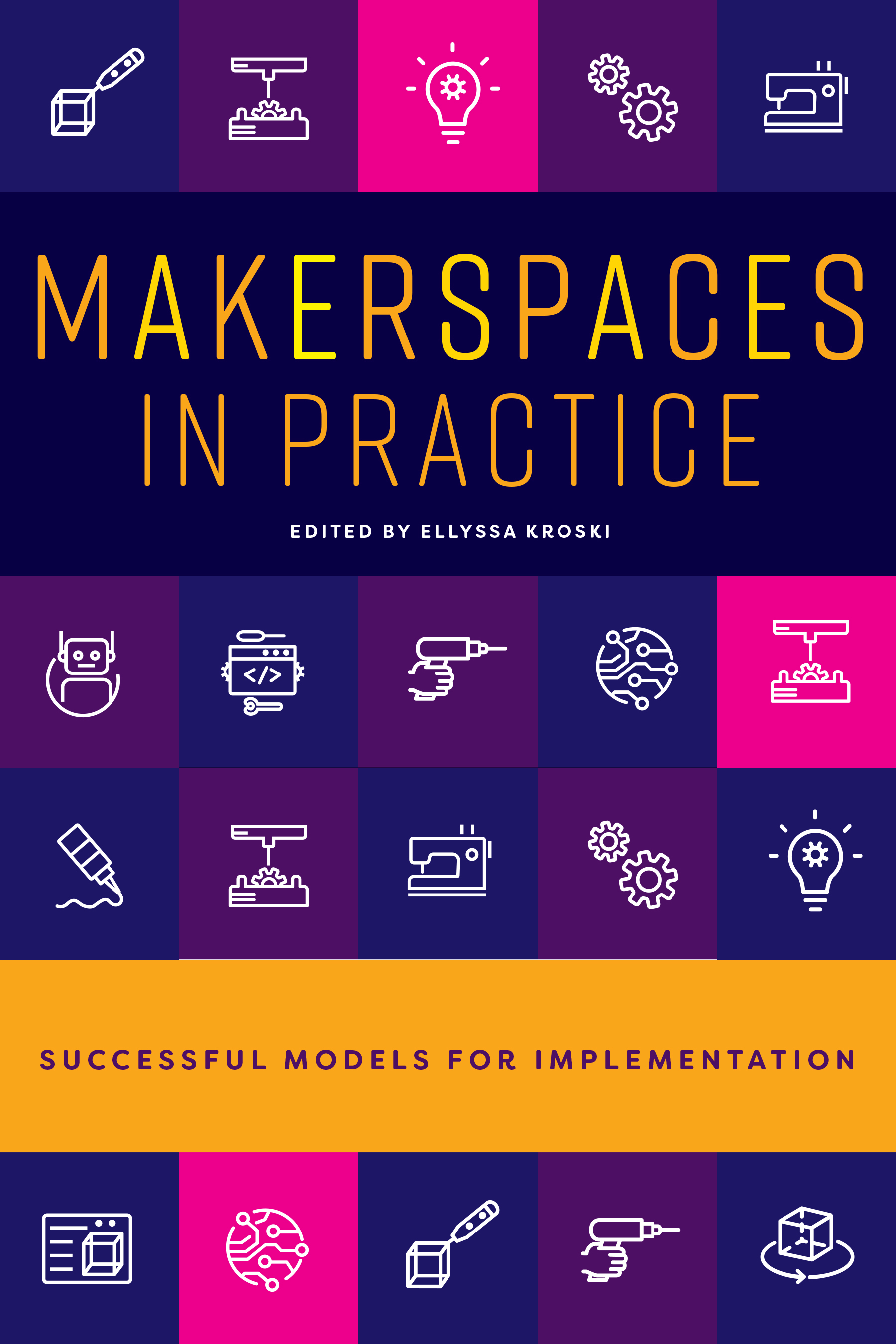Primary tabs
You don't need to be an ALA Member to purchase from the ALA Store, but you'll be asked to create an online account/profile during checkout to proceed. This Web Account is for both Members and non-Members. Note that your ALA Member discount will be applied at the final step of the checkout process.
If you are Tax-Exempt, please verify that your account is currently set up as exempt before placing your order, as our new fulfillment center will need current documentation. Learn how to verify here.
- Description
- Table of Contents
- About the author
- Reviews
According to a Library Journal survey, 89 percent of public libraries now offer maker programming. And they’re increasingly popular at academic and school libraries too. More than a decade since they first began to crop up they continue to transform and revitalize libraries, tapping into patron creativity and fostering collaboration. In this follow-up to her bestselling The Makerspace Librarians Sourcebook, Kroski gathers trailblazers of the maker movement to share their experiences and success stories. This volume is packed with programs and ideas you’ll be excited to implement at your own library. Learn what’s working (and what’s not) through first-hand perspectives on such topics as
- survey results showing the most popular makerspace programs;
- 6 common makerspace challenges and the solutions to meet them;
- examples of successful local partnerships for public, academic, and school libraries;
- establishing norms that encourage safety and peer learning;
- meeting the needs of explorers, learners, and experts in your maker community;
- practical operational guidance, such as workflows for maintaining supplies like scissors, glue, and 3D printer filament;
- hardware and software choices that improve accessibility;
- new developments in 3D printers and modeling software;
- cataloging and circulating maker kits for crafting, soldering, and other projects;
- budgeting tips, including how to plan for ongoing operational costs;
- measuring outcomes in public library makerspaces; and
- future developments expected for library makerspaces and equipment.
You'll be introduced to a host of tried and tested programs you can adapt for your own library, helping you support your community through making.
Preface
Chapter 1 The Current State of Library Makerspaces
Cherie Bronkar
Chapter 2 Sustaining the Library Makerspace
Jamie Bair
Chapter 3 Funding the Makerspace
Andrea Paganelli, Toni Szymanski, and Daniel Verbit
Chapter 4 Makerspace Culture and Its Impact on Learning
Amy Vecchione
Chapter 5 Accessibility and the Makerspace
Oscar Keyes and Eric Johnson
Chapter 6 Challenges of Library Makerspaces and Programs
Wendy Harrop
Chapter 7 Tried and True Makerspace Tools and Technologies
Jonathan M. Smith and Rob Dumas
Chapter 8 Circulating Maker Kits and Tools
Keri Whitmore
Chapter 9 Partnerships with Local Organizations
Dylan Romero
Chapter 10 Tailoring Your Programs for Maker Types
Regina DeMauro and Cady Fontana
Chapter 11 Evaluating Maker Programs in Public Libraries
Nate Stone
Chapter 12 What’s Next for Library Makerspaces
Tara M. Radniecki, Rebecca Glasgow, and Nick Crowl
Chapter 13 Makerspace Resources
Melissa Mendoza
Index
Ellyssa Kroski
Ellyssa Kroski is the Director of Information Technology and Marketing at the New York Law Institute as well as an award-winning editor and author of 60 books, including Law Librarianship in the Age of AI for which she received AALL's 2020 Joseph L. Andrews Legal Literature Award. She is a librarian, an adjunct faculty member at Drexel and San Jose State Universities, and an international conference speaker. She received the 2017 Library Hi Tech Award from the ALA/LITA for her long-term contributions in the area of Library and Information Science technology and its application. She can be found at: http://www.amazon.com/author/ellyssa.
"A well-organized, in-depth look, start to finish, at designing and running a makerspace ... This is a great reference for anyone starting out as well as those who are interested in making changes to an already established space. Required reading for those interested in makerspaces."
— Choice



